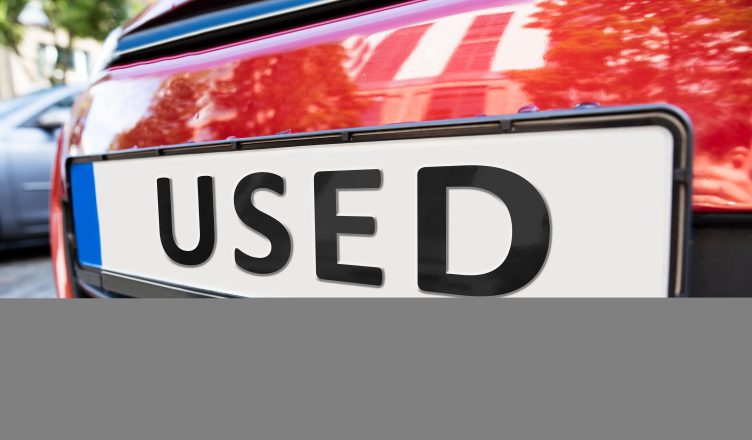According to Overdrive’s 2015 Truck Purchase and Lease survey, nearly 60% of Class 8 trucks purchased by owners-operators are pre-owned.
Used trucks are obviously more affordable than new trucks, but used trucks are much more likely to have something wrong with them. You need to thoroughly inspect a used truck before you buy it. Otherwise, expensive and inconvenient mechanical issues may pop up and make you regret your purchase.
RELATED: 6 Vehicle Maintenance Tips You Should Be Following
Here’s a list of a few key points to include in your checklist when buying a pre-owned vehicle:
#1 Check the Transmission
When searching for a used truck, you’ll have the option of selecting one of the following three types of transmissions:
- Manual transmission
- Automated manual transmission (AMT)
- Fully automatic transmission
Today, most Class 6-8 truck owners or drivers prefer fully automatic transmissions. They’re easier to drive with, and they’re less problematic as well. According to that aforementioned Overdrive survey, 3.9% of used truck drivers described manual transmission components as their biggest maintenance issue, while only 1.1% of used truck drivers reported automated transmission components as their biggest maintenance issue.
Those figures are even more striking when you consider that they don’t account for the fact that there are many more trucks with automatic transmission than manual, and yet in terms of raw stats manual transmissions are still a bigger problem.
Other advantages of manual transmissions include:
- Low maintenance costs
- Ease of use
- Availability of aftermarket replacement parts
However, many truck drivers still prefer manual transmission or AMT. There are indeed some advantages that these types of transmission hold over automatic transmissions (especially AMT, as there is currently a shortage of big rig drivers who are comfortable with manual transmissions).
The advantages of manual and AMT transmissions include:
- Longer transmission life
- Increased fuel efficiency
- Low cost compared to the newer generation of fully automatic transmissions
- Less expensive than fully automatic transmissions to replace
There is no one-size-fits-all solution. The right transmission for you depends on your experience and personal preferences.
#2 Don’t Forget the Brakes
Brake systems need to be well-maintained, as they sustain a lot of stress on a daily basis, especially in heavy trucks. And brakes, of course, are the last thing you want to have a problem with when you’re barreling down the interstate at 70 MPH.
Class 8 trucks use drum brakes, while Class 4-6 trucks use more economical pneumatic and hydraulic disk brakes.
A well-maintained brake system provides many advantages, including:
- Low to no noise
- More stopping power
- Reliable performance
- Increased resistance to wear
- Low maintenance costs
Never make the mistake of not checking out the brake system.
Want To See For Yourself How Route4Me Can Boost Your Profits?
Whether you want to slash the time it takes you to plan routes for your drivers, increase the number of stops they can make, or keep your customers satisfied knowing that your drivers show up on time… Route4Me helps you achieve that!
#3 Check the Lighting System
According to the National Institute for Automotive Service Excellence, you should regularly inspect the following components of your brake lights:
- Circuit switches
- Connectors
- Wiring
The exterior lighting circuits should also be carefully evaluated for operating conditions, as they experience considerable wear and tear. These evaluations should be performed both when moving and when parked.
National Highway Traffic Safety Administration (NHTSA) guidelines are strict, and they factor prominently in roadside inspections. These guidelines concern the following for trucks and trailers:
- Running lights
- Tail lamps
- Headlamps
- Reflectors
- All other markers
A thorough check of both interior and exterior lighting systems must be done in order to ensure you can get through roadside inspections without any hassle.
#4 Other Factors to Consider
Transmission, brakes, and lights are the three major areas to evaluate when buying a pre-owned truck, but there are other things worth considering as well:
- Look underneath the truck for active leaks and any repairs to previous damage
- If the truck is newly painted, find out why this was done, as the new paint could be hiding rust or body work
- Sellers aren’t going to be completely objective, so get a CARFAX report for an unbiased assessment
- Check each opening and body panel joint for fit – if the panels along the body seem wavy, check them with a magnet (plastic body repairs won’t attract a magnet)
- Make sure there are no thuds or knocks when you start the engine (also, the truck should have a high idle setting)
- Shut off the engine, open the trunk, raise the mat and look for rust
- Test drive it on a rough road to see if the shocks control after bouncing
Wrapping Up
These simple yet comprehensive checks will nullify the need for a complete mechanical inspection. If a seller is unwilling to allow such an examination, it’s a huge red flag and you should look elsewhere for your truck. It will take a bit of time and effort to complete this checklist, but not doing so could cost you thousands of dollars.
Did we miss any other important factors that drivers should look for when purchasing a pre-owned truck? Let us know in the comments section below.
Want To See For Yourself How Route4Me Can Boost Your Profits?
Whether you want to slash the time it takes you to plan routes for your drivers, increase the number of stops they can make, or keep your customers satisfied knowing that your drivers show up on time… Route4Me helps you achieve that!

